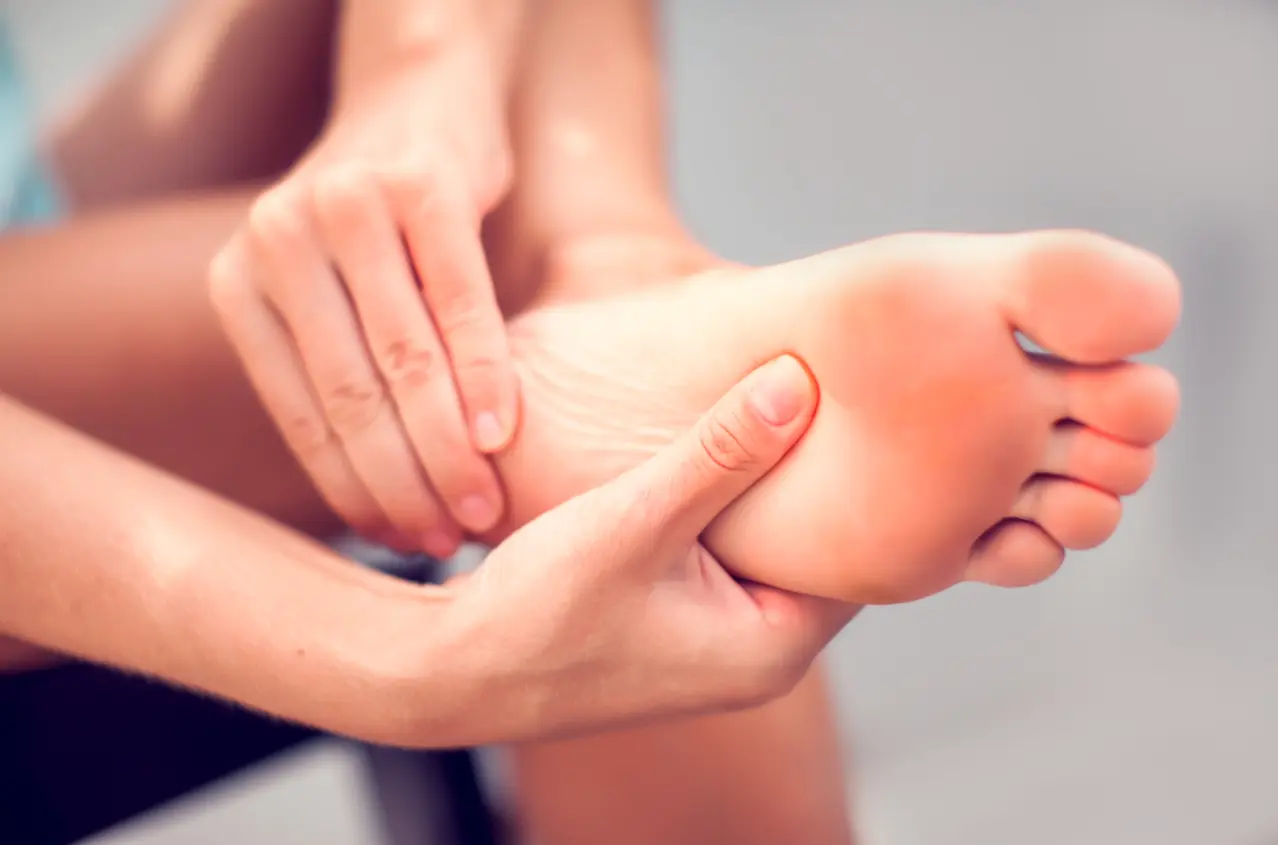Your feet are one of the hardest working parts of your body. After a long day of standing or walking, you may be left with aching, sore feet. This can happen to anyone, but it’s important to consider that you might have an underlying health issue causing your foot pain to be worse than usual. Here are some effective at-home treatments to soothe sore feet, as well as tips about when to see a doctor about your foot pain.
Relieve Sore Feet Immediately
After a long day of standing and walking, you might need immediate treatment to relieve your foot pain. Here’s what to do:
- Soak your feet: Dip your sore feet in a warm bath for five or 10 minutes. Try adding Epsom salts to increase the soothing effect.
- Ice your feet: If your feet are swollen or hot to the touch, try soaking them in cool water instead of warm. Rolling the bottoms of your feet over a frozen water bottle can also provide relief. Then, elevate your feet for 30 minutes to help bring the inflammation down.
- Stretch and massage your feet: Overused muscles and connective tissues may cramp up. To relieve this tightness, try stretching and massaging your feet, preferably after soaking them. Sit in a comfortable position and rub the balls of your feet with your thumbs. Then, bend your toes back to feel a stretch along the arch of your feet. Rub this area as well. Massage your heels with your thumbs and fingers to relieve tightness here. Finally, roll your ankles in circles while bending and flexing your toes.
- Take anti-inflammatory medication: Help your sore feet recover with over-the-counter drugs such as acetaminophen, ibuprofen, or naproxen sodium. Be aware that these medications are meant for short-term use only to avoid side effects.
- Apply topical pain reliever: Creams containing menthol, eucalyptus, and turpentine are designed to help soothe sore feet by producing a cooling sensation. Apply pain-relieving cream to the achy parts of your feet for the immediate relief you need.
Prevent Foot Pain in the Future
If you know you’re prone to foot pain, take a few preventative steps to keep soreness at bay. Here’s what we recommend:
- Strengthen your ankles, feet, and toes: Strong feet are less prone to pain and injury. All it takes is a few simple exercises. Try picking up objects with your toes, making circles with your ankles, standing on your tip-toes, and alternating flexing and pointing your feet.
- Assess your shoes: High heels and unsupportive flip-flops may be contributing to your foot pain. Try wearing comfortable athletic shoes from day to day and sensible, low-heeled dress shoes with wide toe boxes for formal occasions. If you struggle to find comfortable footwear, consider buying arch supports to decrease the shock of every step.
- Trim calluses and corns: Areas of hard, dry skin on the bottoms of your feet could be creating pressure in uncomfortable places. If you’re prone to calluses and corns, soak your feet for 10 minutes, dry them off, and scrape the hard spots with a pumice stone or emery board. Then, apply foot butter and put on socks to lock in the moisture.
- Wear night splints: For some people, sleeping with pointed toes causes foot pain. Try wearing night splints to control the position of your feet while you’re asleep.
When to See a Doctor About Your Sore Feet
Plan to treat occasional sore feet with the above tips. However, if your foot pain becomes severe or is accompanied by other symptoms, it’s wise to seek professional medical help. Contact your doctor if you experience any of the following:
- Swelling or severe foot pain that lasts for longer than a day or two, even after trying home remedies for sore feet
- Tingling or numbness on the bottom of your feet, a sign of nerve damage caused by diabetes
- Open wounds on your feet that may be infected
- Flu-like symptoms combined with foot pain
- Inability to walk
At Spine Correction Center of the Rockies, we take your sore feet seriously. Depending on your ailment, you might benefit from custom orthotics, a type of shoe insert that cradles your feet and makes walking more comfortable. We also offer effective treatments for plantar fasciitis, bunions, metatarsalgia, arthritis of the ankle and foot, and other conditions.
Call us today at (970) 658-5115 for a free foot pain consultation in Fort Collins.

